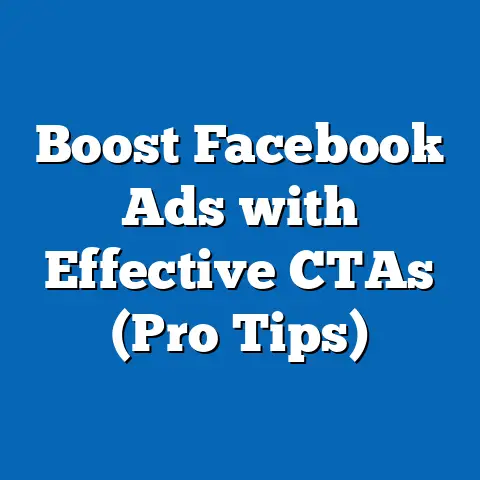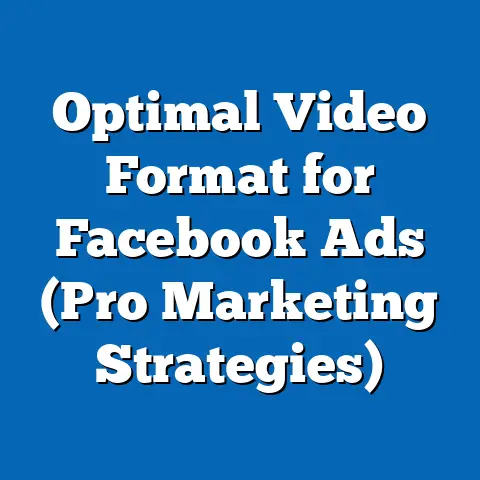Get Authorized for Political Ads on Facebook (Essential Guide)
In a world where social media sways public opinion, the vibrant landscape of Facebook has become a battleground for political discourse.
The dynamic nature of political campaigns and elections finds a powerful echo in the platform’s ability to amplify voices and messages.
Political advertising on Facebook is more than just placing ads; it’s about understanding the intricate rules, ethical considerations, and strategic opportunities.
In an era of heightened scrutiny and regulation, grasping Facebook’s policies for political advertising is not merely advisable—it’s essential.
This guide is designed to navigate the complexities of political advertising on Facebook, offering a comprehensive, step-by-step approach to getting authorized, crafting effective ads, and staying compliant.
I’ll share my experiences, insights, and practical tips to help you make your voice heard in the political arena.
Understanding the Landscape of Political Advertising on Facebook
Political advertising on Facebook encompasses a broad spectrum of content.
It includes candidate promotions, issue advocacy, referendums, and any material that seeks to influence public opinion on political matters.
For example, an ad supporting a specific candidate in an upcoming election, an initiative advocating for climate change policies, or a campaign promoting a local referendum all fall under the umbrella of political advertising.
Facebook’s significance as a platform for political ads cannot be overstated.
With billions of active users, Facebook offers unparalleled reach and engagement.
According to recent statistics, political ads on Facebook have the potential to reach millions of voters, making it a pivotal tool for political campaigns.
The platform’s sophisticated targeting capabilities allow campaigns to reach specific demographics, interests, and even past behaviors, ensuring that messages resonate with the intended audience.
Recent trends in political advertising on social media have demonstrated a growing emphasis on personalized messaging and data-driven strategies.
Campaigns are increasingly leveraging data analytics to understand voter preferences and tailor their ads accordingly.
This shift has a profound impact on elections and public opinion, as targeted ads can influence voter behavior and shape political narratives.
Key Takeaway: Political advertising on Facebook is a powerful tool that requires a deep understanding of the platform’s capabilities and the evolving landscape of digital politics.
Key Policies and Regulations Governing Political Ads
Facebook’s specific policies regarding political advertising are designed to promote transparency and accountability.
The platform requires political advertisers to undergo an authorization process, which includes verifying their identity and disclosing who is paying for the ads.
This transparency aims to prevent foreign interference and ensure that voters know the source of political messages.
Here’s a breakdown of Facebook’s key policy requirements:
- Transparency: Advertisers must clearly state who is responsible for the ad.
- Targeting: Facebook restricts certain targeting options to prevent discrimination and ensure fair reach.
- Approval: All political ads must be reviewed and approved by Facebook before they can run.
The legal landscape surrounding political ads is complex and varies by region.
In the United States, federal regulations require disclosure of campaign finance information, including who is funding political ads.
State regulations may impose additional requirements.
Advertisers must be aware of and comply with these laws to avoid legal repercussions.
Ethical considerations are paramount in political advertising.
Misleading information, biased targeting, and privacy violations can erode public trust and damage a campaign’s reputation.
I’ve seen firsthand how ethical lapses can lead to significant backlash and even legal action.
Key Takeaway: Compliance with Facebook’s policies and relevant legal regulations is essential for running ethical and effective political ads.
The Authorization Process for Political Ads
Getting authorized to run political ads on Facebook involves several key steps.
This is where I’ll provide a step-by-step guide based on my own experience and insights.
Step 1: Creating a Facebook Account and Business Manager Setup
First, you’ll need a personal Facebook account.
Once you have that, create a Facebook Business Manager account.
This is where you’ll manage your ads, pages, and other assets.
- Go to Facebook Business Manager and click “Create Account.”
- Follow the prompts to set up your Business Manager, providing your business name, contact information, and other required details.
Step 2: Navigating to the ‘Ad Library’ and Understanding Its Functionality
The Ad Library is a crucial tool for understanding the political ad landscape on Facebook.
It allows you to search and view all active and inactive political ads.
- Go to the Facebook Ad Library.
- Use the search filters to find political ads by keyword, advertiser, or location.
- Analyze the ads to understand what types of messages are being used and how they are being targeted.
Step 3: Completing the Necessary Forms for Ad Authorization
To get authorized, you’ll need to complete several forms and provide documentation to verify your identity and disclose who is paying for the ads.
- In your Business Manager, go to “Ad Account Settings.”
- Look for the “Political Ad Authorization” section.
- Complete the required forms, providing accurate and up-to-date information.
- Upload a copy of your government-issued ID to verify your identity.
- Provide information about the organization or individual paying for the ads.
The authorization process can take several days to complete, so it’s important to start early.
I remember one campaign where the authorization was delayed due to a minor discrepancy in the documentation, so double-check everything.
Key Takeaway: The authorization process is straightforward but requires careful attention to detail.
Make sure to provide accurate information and allow ample time for approval.
Crafting Effective Political Ads
Creating compelling political ads that comply with Facebook’s guidelines requires a strategic approach.
Here are some tips based on my experience:
Engaging Visuals
Visuals are the first thing people see, so make them count.
Use high-quality images and videos that capture attention and convey your message effectively.
For example, an ad highlighting a candidate’s community involvement could feature photos of them volunteering at local events.
Clear Messaging
Your message should be clear, concise, and easy to understand.
Avoid jargon and focus on the key points you want to convey.
For example, an ad advocating for a specific policy should clearly state the policy’s goals and benefits.
Calls-to-Action
A strong call-to-action tells people what you want them to do next.
Whether it’s visiting a website, signing a petition, or donating to a campaign, make it clear and easy to take action.
Targeting Audiences Effectively
Facebook’s targeting options allow you to reach specific demographics, interests, and behaviors.
Use this to your advantage, but be mindful of Facebook’s restrictions on certain targeting options.
For example, you can target voters in a specific district who are interested in environmental issues.
Case Studies
One successful political ad campaign I worked on used a series of short videos featuring ordinary people sharing their personal stories.
These videos resonated deeply with voters and helped to humanize the candidate.
The key was authenticity and relatability.
Key Takeaway: Effective political ads combine engaging visuals, clear messaging, strong calls-to-action, and strategic targeting.
Monitoring and Analyzing Ad Performance
Tracking the performance of your political ads is crucial for optimizing your campaign.
Facebook provides a range of tools for monitoring key metrics.
Tools Available within Facebook
Facebook Ads Manager offers a comprehensive dashboard for tracking ad performance.
You can see how many people your ads have reached, how many clicks they’ve received, and how much you’ve spent.
Key Metrics to Monitor
- Engagement Rate: Measures how much people interact with your ads (likes, shares, comments).
- Click-Through Rate (CTR): Measures the percentage of people who click on your ad.
- Conversion Tracking: Measures how many people take a desired action after clicking on your ad (e.g., signing a petition, donating).
Continuous Optimization
Based on the data you collect, make adjustments to your ads to improve their performance.
This might involve changing your targeting, refining your messaging, or experimenting with different visuals.
Key Takeaway: Continuous monitoring and optimization are essential for maximizing the impact of your political ads.
Navigating Challenges and Roadblocks
Political advertising is not without its challenges.
Misinformation, backlash, and changing regulations can all pose significant roadblocks.
Common Challenges
- Misinformation: Combating false or misleading information is crucial.
- Backlash: Negative reactions to your ads can damage your reputation.
- Changing Regulations: Political advertising laws are constantly evolving.
Strategies for Overcoming Challenges
- Fact-Checking: Verify all information before including it in your ads.
- Crisis Management: Have a plan in place for responding to negative feedback.
- Legal Counsel: Consult with an attorney to ensure compliance with all applicable laws.
I’ve seen campaigns successfully navigate these challenges by being proactive and transparent.
One campaign I worked on faced a misinformation attack, but we quickly responded with accurate information and debunked the false claims.
Key Takeaway: Being prepared for challenges and having a plan in place for addressing them is essential for success in political advertising.
Conclusion
Getting authorized for political ads on Facebook is a crucial step for engaging with the electorate.
Understanding Facebook’s regulations and effectively utilizing the platform can significantly enhance a political campaign’s reach and impact.
By following the steps outlined in this guide, you can navigate the complexities of political advertising on Facebook and make your voice heard in the political arena.
Take the necessary steps to get authorized, craft effective ads, and stay compliant.
Your voice matters, and Facebook can be a powerful tool for amplifying it.
So, what are you waiting for?
Start the authorization process today and make your voice heard in the political arena!






